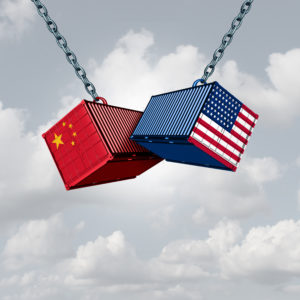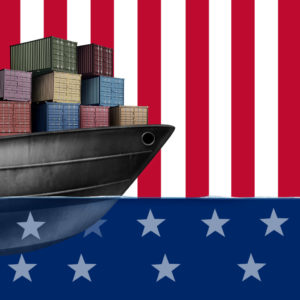News & Insights
BIS Issues Notice Of Proposed Rulemaking For Certain Foundational Technologies
Today, the Commerce Department’s Bureau of Industry and Security (BIS) issued its notice of proposed rulemaking for certain foundational technologies and seeks public comments on the technologies that should be considered for additional export controls under the Export Administration Regulations (EAR) (15 C.F.R. Parts 730 – 774). Specifically, BIS is soliciting comments on the following:
- How to further define “foundational technology” to assist in identification of such items;
- Sources to identify such items;
- Criteria to determine whether items controlled only for anti-terrorism reasons or classified as EAR99 are essential to U.S. national security;
- Status of development of foundational technologies in the U.S. and other countries;
- Impact of specific foundational technology controls may have on the development of such technologies in the US;
- Examples of implementing controls based on end use or end user rather than, or in addition to, technology based controls;
- Any enabling technologies, including tooling, testing and certification equipment that should be included within the scope of a foundational technology;
- Any other approaches to the issue of identifying foundational technologies important to U.S. national security, including the stage of development or maturity level of a foundational technology that would warrant consideration for export control.
Comments must be submitted to the BIS on or before October 26, 2020 via mail/courier or via the Federal eRulemaking Portal (https://www.regulations.gov). The BIS will review the comments received to help identify, reevaluate and establish controls for foundational technologies. The interagency review process will result in proposed rules, as well as additional opportunities to submit public comments with respect to proposed new control levels for items controlled for anti-terrorism reasons on the Commerce Control List (CCL) in Supplement No. 4 to Part 774 of the EAR or new Export Control Classification Numbers (ECCNs) for technologies that are currently classified as EAR99.
By way of background, the Export Control Reform Act of 2018 (ECRA), which is the statutory authority for the EAR, requires the BIS to identify foundational technologies and apply appropriate export controls to them. Accordingly, the BIS and other federal government agencies are currently working to identify emerging and foundational technologies that are essential to the national security of the United States. The interagency review process must take into account:
- The development of foundational technologies in foreign countries;
- The effect export controls may have on the development of such technologies in the United States; and
- The effectiveness of export controls imposed on limiting the proliferation of foundational technologies to foreign countries.
The terms “emerging and foundational technologies” are defined under the ECRA as those that are essential to the national security of the United States and that are not critical technologies[1] under the Defense Production Act of 1950 (DPA) (50 U.S.C. 4565(a)(6)(A)(i)-(iv)). Commodities, software and technology subject to the EAR that are not critical under the DPA may be controlled for anti-terrorism (AT), crime control (CC), or short supply (SS) reasons, United Nations embargoes, or they may be classified as EAR99. The BIS notice provides that the term “foundational technologies” encompasses “technology,” “commodities” and “software” as defined in the EAR.
Of significance to U.S. exporters, items that are currently controlled only for anti-terrorism (AT) reasons or that are classified as EAR99 (for which licenses are generally not required) will also be reviewed to determine if they are foundational technologies essential to U.S. national security and therefore warrant more stringent controls. As an example, the BIS noted that such items may be reviewed if they are utilized or required for innovation in developing conventional weapons, enabling foreign intelligence collection activities, or weapons of mass destruction applications. The BIS also noted that it seeks to determine whether there are specific foundational technologies that warrant more restrictive controls (e.g., technologies that have been the subject of illicit procurement attempts which may demonstrate some level of dependency on U.S. technologies to further foreign military or intelligence capabilities in countries of concern or development of weapons of mass destruction).
Companies dealing in semiconductor manufacturing equipment and associated software tools, lasers, sensors, underwater systems, items that can be utilized in developing conventional weapons, foreign intelligence collection activities or weapons of mass destruction applications, and other items –whether or not controlled for anti-terrorism reasons only or classified as EAR99—should review the BIS’ notice and consider submitting public comments to the BIS no later than October 26, 2020. For further details, see 85 Federal Register 52934 (August 27, 2020).
[1] Under the DPA, the term “critical technologies” means the following:
(i) Defense articles or defense services on the United States Munitions List in the International Traffic in Arms Regulations (22 C.F.R. Part 121.1);
(ii) Items included on the Commerce Control List in Supplement No. 1 to Part 774 of the EAR controlled under multilateral regimes for national security, chemical and biological weapons proliferation, nuclear nonproliferation, missile technology, regional stability or surreptitious listening.
(iii) Specially designed and prepared nuclear equipment, parts and components, materials, software, and technology covered by 10 C.F.R. Part 810.
(iv) Nuclear facilities, equipment, and material covered by 10 C.F.R. Part 110.
(v) Select agents and toxins covered by 7 C.F.R. Part 331, 9 C.F.R. Part 121 and 42 C.F.R. Part 73.
News & Insights

Commerce Department and ZTE Reach New Agreement on U.S. Export Violations
On June 7th, the Commerce Department announced that Zhongxing Telecommunications Equipment Corporation and ZTE Kangxun Telecommunications Ltd. (collectively “ZTE”) agreed to additional civil penalties and compliance measures in exchange for their removal from the Bureau of Industry and Security (“BIS”)

USTR Requests Petitions from North American Auto Producers to Use Alternative Staging Regime for the USMCA Rules of Origin
On April 21, 2020, USTR published a Request for Petitions from North American automotive producers of passenger vehicles and light trucks for an alternative to the standard staging regime for the rules of origin for automotive goods under the US-Mexico-Canada


